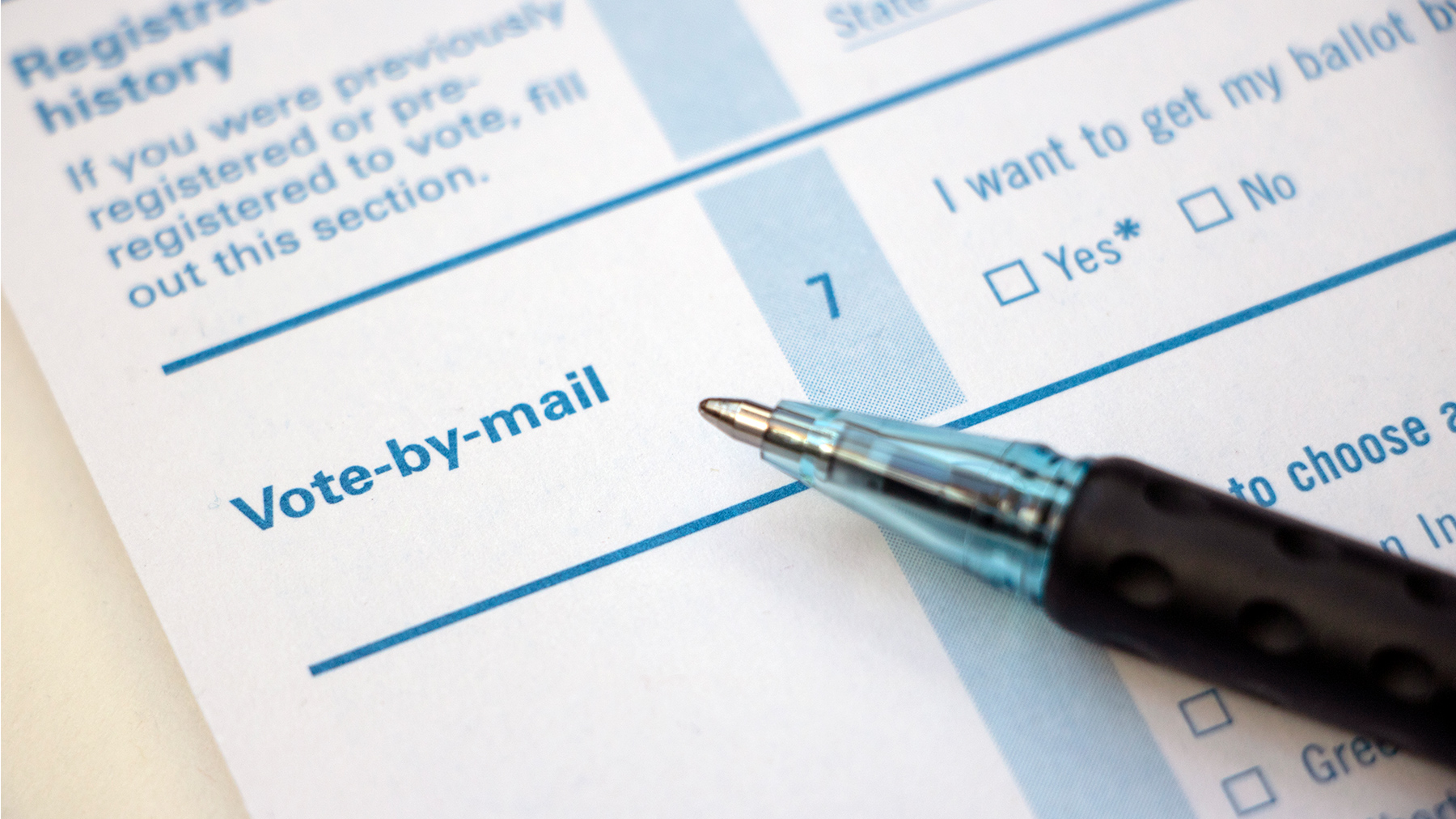The SPLC and its co-counsel, Alabama Disabilities Advocacy Program (ADAP) and Brown Goldstein & Levy, filed a federal lawsuit today against the state of Alabama for denying voters who are blind or have print disabilities access to the state’s absentee ballot program in violation of the Americans with Disabilities Act (ADA) and the Rehabilitation Act (RA).
Filed on behalf of the National Federation of the Blind of Alabama (NFB-AL), the suit asserts that the state excludes blind and print-disabled Alabamians from absentee voting because it forces them to seek another person’s assistance in order to complete their ballots.
“Blind Alabamians have an equal right to vote and to advocate for the needs of our communities, but the inaccessible absentee voting system in Alabama has denied us that right and diminished our voice in government,” said Barbara Manuel, president of the NFB-AL. “It is high time the secretary of state’s office let us, and voters with print disabilities, use electronic ballots for absentee voting.”
Alabama law specifically and explicitly permits voters with disabilities to vote absentee, but the ballot is provided to absentee voters living in the U.S. only in paper form. Alabama law also guarantees “every voter in Alabama … the right to vote a secret ballot, and that ballot shall be kept secret and inviolate.”
“Alabama’s current absentee ballot program requires the blind and voters with print disabilities to secure another person’s help to read and mark their ballots,” said Eve Hill, partner at Brown Goldstein & Levy. “That requirement is unlawful. Alabama has the means and the legal duty to provide ballots electronically to, and accept marked ballots electronically from, voters who are blind or have a print disability.”
Alabama voters receive three envelopes with their absentee ballot: a “secrecy” envelope, an “affidavit” envelope and a pre-addressed “outer” envelope. A blind or print-disabled voter must complete a series of steps that require assistance – including reading the ballot and filling it out by hand – that compromise the secrecy of their ballot.
“The remedy is clear: The secretary of state must implement an accessible electronic absentee voting program, so that the blind voters and voters with print disabilities can enjoy an equal opportunity to vote absentee and have an equal say in how their communities are governed,” said Liza Weisberg, voting rights staff attorney with the SPLC.
The suit seeks implementation of a system in which blind voters and voters with print disabilities can access an electronic ballot they can read and mark on their own computers or smart devices using their own assistive technology. Blind people and people with print disabilities can independently access and interact with printed materials only when they are offered in an electronic format that can be used with a screen reader. Screen reader software reads aloud, or displays on a refreshable Braille display, the visual information on the electronic page.
“The right to vote absentee is critical to all Alabamians, but especially to those who are blind or have print disabilities and face heightened barriers to in-person voting in the form of transportation challenges, untrained poll workers and inaccessible voting technology,” said William Van Der Pol, senior trial counsel with ADAP. “It is thus essential that the secretary of state provide the blind voters and voters with print disabilities the option to vote absentee using an accessible electronic ballot delivery and return system.”
Photo at top: A voting registration form sits with the option to vote by mail unchecked. (Credit: iStock Photo)



